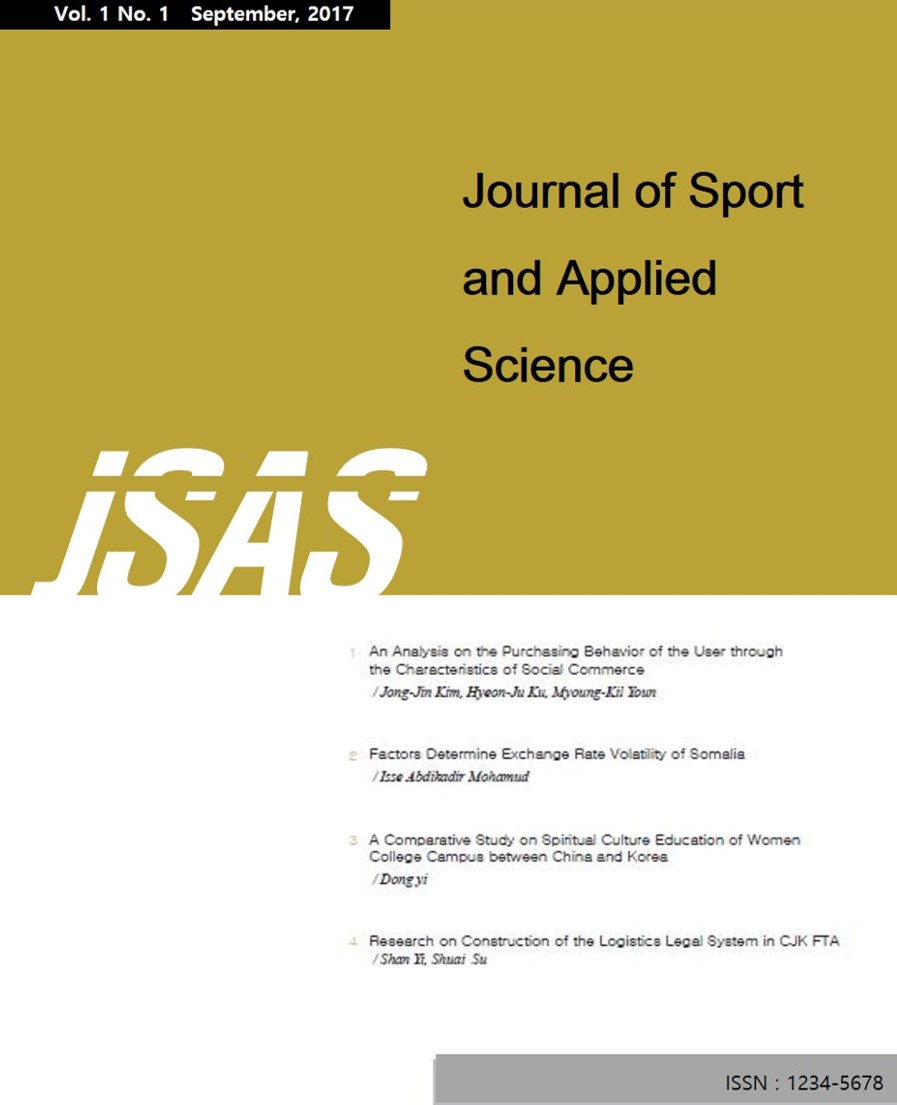 E-ISSN : 2586-6028
E-ISSN : 2586-6028
OH, Yun Chae
SONG, Youn Sang
MOON, Hwang Woon
Abstract
Purpose: With an increase of concerns towards leisure activities, water sport participation is constantly increasing. The purpose of this study is to examine the effects of exercise commitment on leisure satisfaction. Research design, data, and methodology: To accomplish the purpose, the study collected data from undergraduate students who participated water sports class in University. The sample was extracted by purposive sampling of nonprobability sampling. 281 students participated in the survey. Data were computed via correlation test, factor analysis, Cronbach's α test, one way ANOVA, and regression. Significance of all results was set to p<.05. Results: The results are like below. Frist, in terms of differences by demographics, the results indicated that significant difference between exercise commitment and leisure satisfaction by gender was shown only in psychological factor in leisure satisfaction. Second, in terms of the relationship between commitment and satisfaction, the findings pointed out that significant difference between exercise commitment and leisure satisfaction by grade was observed only in leisure satisfaction, especially on the educational part. Third, the study revealed that no significant difference by participation level was shown. Conclusions: In conclusion, the study posits that exercise commitment play a function in increasing the leisure satisfaction. Further implications were discussed.
- keywords
- Exercise Commitment, Water sport, Leisure Satisfaction
- Downloaded
- Viewed
- 0KCI Citations
- 0WOS Citations













